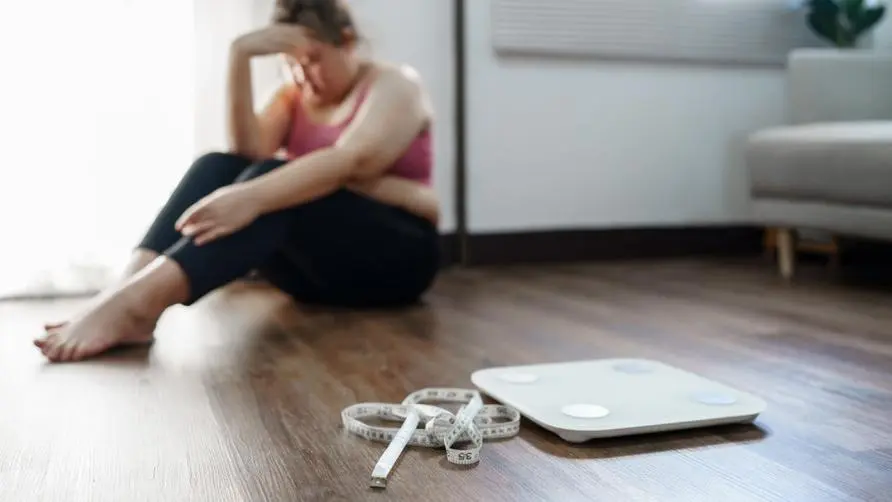Will "going to bed 1 hour earlier" every day help lose weight? Benefits revealed by doctors: Improve sleep and reduce 270 calories a day

Eating healthily and exercising more but still failing to lose weight? Medical answer: You can start by “improving sleep”
Sleep is an essential and important factor in life. But sleep not only affects your fatigue level, but also your weight? Dr. Cai Mingjie, a specialist in endocrinology and metabolism, pointed out in the community that lack of sleep is closely related to obesity. The most important mechanism include the following three points:
Whether you have enough sleep. This is because individuals do not engage in eating behavior when they are asleep; going to bed late is likely to increase the chance of eating late-night snacks, which are usually not healthy foods and are more likely to lead to obesity and body fat gain.
On the contrary, increasing the time or quality of sleep is obviously beneficial to the weight loss plan. A 2022 randomized controlled trial published in “JAMA Internal Medicine” pointed out that subjects who increased their sleep by 1.2 hours through health education measures would eat 270 fewer calories a day than the control group, and could lose weight in 2 weeks. Lose about 0.87 kg more. There is also literature supporting the argument that getting enough sleep can help with weight loss and fat loss.
Secretion of hormones. In addition to being unable to eat during sleep, an individual’s “appetite” is also affected by sleep. This mechanism comes from the regulation of hormones, because lack of sleep will reduce leptin (Leptin) and increase ghrelin (Ghrelin) in the body. Lean body is a hormone that suppresses appetite, while ghrelin stimulates appetite. Therefore, when sleep is insufficient, the human body feels particularly hungry, eats more, and tends to choose high-carbohydrate and high-fat foods, which naturally leads to weight gain.
The level of activity. Lack of sleep makes it easy to feel tired. Once the body feels tired or sleepy, it will unintentionally make adjustments to reduce the energy consumption of physical activities. For example, I want to go to the gym to train after get off work, but I am too lazy to go because I don’t have enough sleep; I originally wanted to walk home but changed to riding a motorcycle, and I originally wanted to do housework but ended up lying around scrolling on my phone and watching TV series. Reduced activity energy consumption is also one of the reasons for fat accumulation.
If you frequently get stuck in weight loss and cannot continue to make progress, it is recommended to sleep at least 7 hours or more.
As for how much sleep should be enough every day? Dr. Cai Mingjie said that sleep time depends on an individual’s lifestyle and work nature, so there is no absolute answer. However, according to expert recommendations, most adults should sleep for 7-8 hours a day to ensure that the body and brain can fully rest and recover. Children under 12 years old need more than 9 hours of sleep.
Dr. Cai Mingjie reminds that diet and exercise are the foundation of weight loss, but if you are currently stuck in weight loss and unable to make progress, you can try to check your sleep status, and you may gain unexpected gains. As long as you can gradually improve your sleep, you can improve your daily feeling of weakness or sleepiness, and you can be more devoted to exercise training. Supplemented by a healthy diet, you can help lose weight twice the result with half the effort.
How to improve sleep problems and avoid obesity? Harvard reveals that it should start with “these 6 points” to improve
As for how to improve sleep quality and help lose weight? According to Harvard Medical School, we can start from the following six major aspects:
Examine the root cause, including disease, medication, etc.
Good sleep habits: Only sleep or engage in sexual activity in bed, avoid noise and light obstruction, and try to get up at the same time. If you cannot fall asleep within 20 minutes, you can get up and engage in reading or other relaxing activities. Do not force yourself to fall asleep.
Control your sleep during the day. Lying in bed during the day may make it difficult to fall asleep at night. If you feel depressed during the day, you can simply close your eyes to rest.
Appropriate exercise period. Exercise will stimulate the body and brain. It is recommended to avoid exercise within three hours before going to bed.
Avoid bad diet, foods that can easily cause heartburn, heartburn, and drinks containing caffeine. It is recommended to avoid it six hours before going to bed. In addition, it is not recommended to drink alcohol two hours before going to bed.
Consult a sleep expert. If improving the above sleep habits still does not work, it is recommended to go to a sleep center to seek diagnosis from a specialist.
In terms of diet, foods rich in L-tryptophan can be converted into serotonin, which can help calm the body, improve sleep and calm mood, while complex carbohydrates (whole grains) will promote the conversion of L-tryptophan into serotonin. It also helps to stabilize blood sugar. Foods rich in L-tryptophan include chicken, milk, pumpkin seeds, cheese, beans, fish, eggs, meat, almonds, etc. In addition, consuming more fruits and vegetables that help fight inflammation, as well as unrefined whole grains, can also help maintain overall health.
Extended reading:





